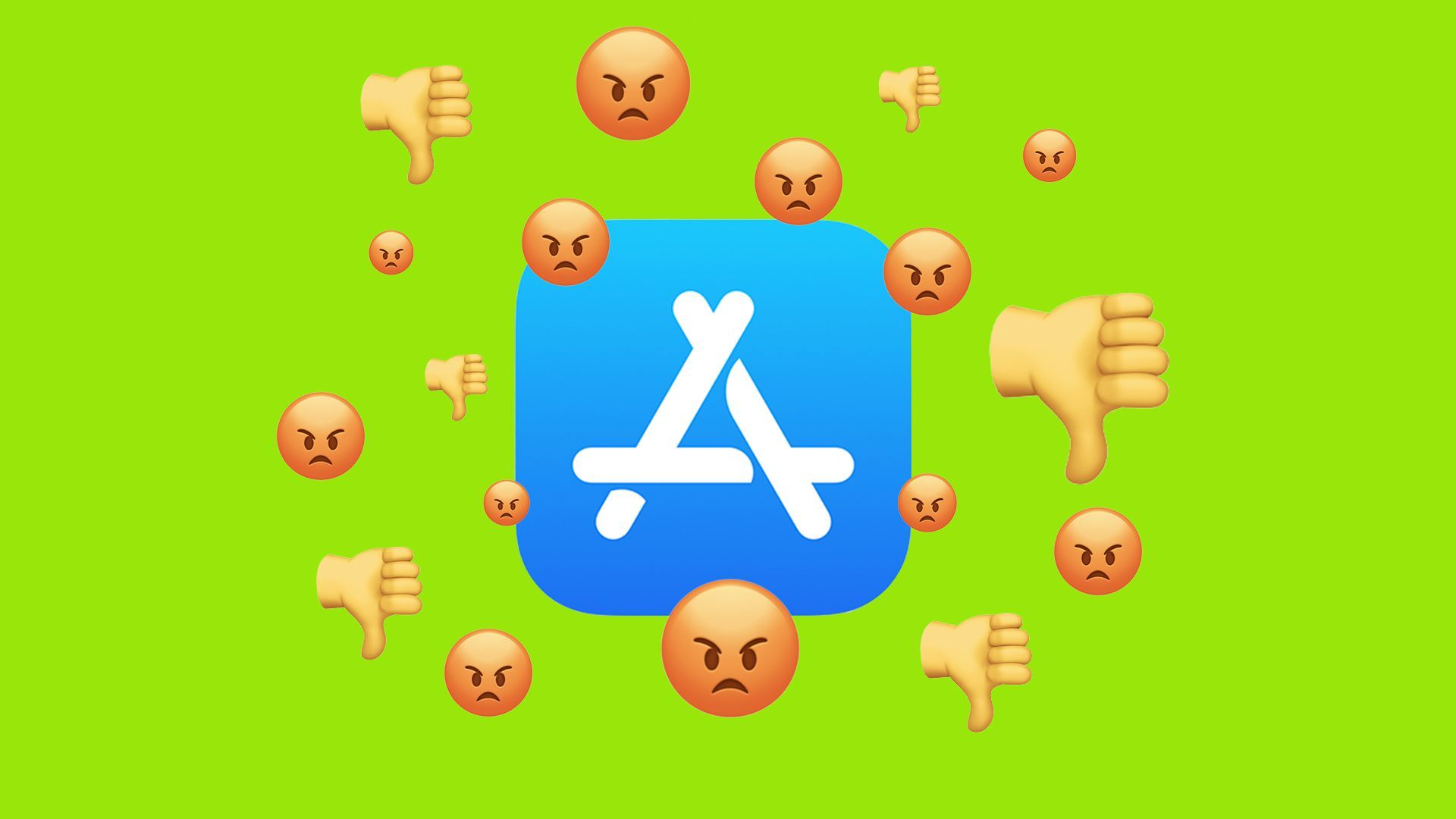Tech giants pile onto Apple amid App Store criticism
Add Axios as your preferred source to
see more of our stories on Google.

Illustration: Aïda Amer/Axios
A steady drip of criticism over Apple's App Store policies has become a torrent, as even other tech giants feel emboldened to pile on — but Apple's path to satisfying its critics is uncertain.
Why it matters: Apple's policies aren't that different from those governing other digital marketplaces, but its size and inflexibility could fuel regulatory action from antitrust authorities in the U.S. and beyond.
The big picture: The criticisms of the App Store are many and varied, but most revolve around the 30% cut that Apple takes on sales of apps and other digital goods, with very limited workarounds.
Driving the news: Microsoft on Sunday became the latest company to take aim at Apple, warning in a court filing that a move to restrict Epic Games' access to developer tools could impact lots of games from other developers that rely on Epic's Unreal game engine.
Others recently raising alarm over the way Apple runs the App Store include:
- Epic itself, locked in a battle over the 30% commission, which wants a court to restore Fortnite to the App Store and stop Apple from cutting off its developer access. (Apple defended itself Friday, likening Epic to a shoplifter and insisting Epic's issues were a crisis of its own making.)
- Automattic, blocked from updating its WordPress app for not letting users buy .com domains through Apple's in-app purchase system, despite not letting users buy such domains directly in the WordPress app at all. (Apple clarified its position and apologized for any confusion over the weekend.)
- Plus, a group of news publishers asking for better App Store terms; Facebook, which suggests Apple's terms will hurt small businesses; and Airbnb, which reportedly talked with House antitrust enforcers after Apple asked for a commission on Airbnb's recently launched online experiences.
Between the lines: Most Apple critics want to be freer to use alternatives to Apple's payment systems, while some want to see Apple lower its cut or not apply it to particular classes of goods and services.
- Apple has drawn a bright line, saying it is entitled to a cut of all digital goods and services — a fee that doesn't apply to the sale of physical goods and in-person experiences it facilitates.
That position harms competition, several companies have long argued, even before the recent spiraling of grievances.
- Spotify, for instance, says Apple gives itself a competitive edge by keeping all Apple Music subscription revenue while eating into that generated by other streaming services. EU antitrust regulators are now probing the App Store, in part due to Spotify's complaints.
- Match Group says Apple puts paid services at a disadvantage against ad-funded rivals that don't have to give Apple a cut of their revenue.
Yes, but: Apple's rules are slightly stricter, but not all that different from those on other digital marketplaces, including those run by Amazon, Google and Microsoft.
Our thought bubble: While it's easy to see how Apple's digital versus physical goods distinction can feel unfair or arbitrary, it's hard to see where to draw a different line.
- Apple could face pressure to offer developers more alternatives. Notably, Epic also baited Google into pulling Fortnite from the Play Store and then suing, but Epic is still able to distribute Fortnite directly to Android users.
- Apple insists that offering such alternatives would make it harder to keep customers safe from malware and privacy invasions.
The bottom line: Expect these arguments to come from more companies in more settings, with courts and regulators likely having to decide if there's an antitrust problem at play.
